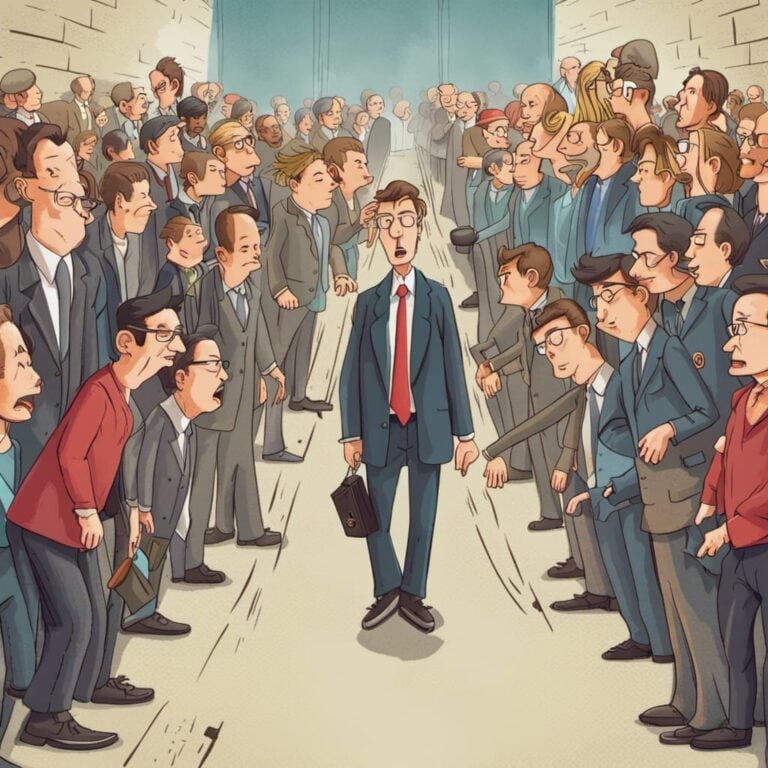In today’s world, where discussions around social justice and equality are at the forefront, it is essential to grasp the nuances of different terms used to describe societal issues. Two commonly used terms that often come up in these conversations are “oppression” and “suppression.” Although they may seem similar at first glance, understanding their distinctions is crucial. In this blog post, we will delve into the difference between oppression and suppression, shedding light on their unique characteristics and implications.
Oppression Meaning
Oppression refers to a systematic form of dominance and discrimination imposed on a particular group or individual. It is characterized by the abuse of power, control, and denial of basic rights and opportunities. Oppression often takes root within social, political, and economic structures, perpetuated by those in positions of authority or privilege. Historically, oppressive systems have targeted marginalized communities based on factors such as race, ethnicity, gender, sexual orientation, and socioeconomic status.
The Effects of Oppression
The effects of oppression are far-reaching and profound. It diminishes the autonomy and agency of the oppressed, limiting their ability to exercise their rights, fulfill their potential, and participate fully in society. Oppression can manifest in various forms, such as institutional discrimination, systemic racism, gender inequality, or cultural marginalization. It creates an environment that reinforces stereotypes, restricts social mobility, and perpetuates cycles of poverty and disenfranchisement.
Oppressed people also suffer from anxiety, depression, and post-traumatic stress disorder.
Oppression Examples
Some examples of oppression are racism, sexism, and homophobia.
Another example is the way Indigenous people have been treated in Canada. They were forcibly removed from their lands, and they were not allowed to practice their own culture or language.
Systemic Oppression
Systemic oppression is when a whole system is designed to keep certain groups of people down. Oppression can happen on an individual level, or it can be systemic.
Some examples of systemic oppression are the Jim Crow laws in the United States, which kept black people from voting and equal access to education and other opportunities.
Systemic oppression can also happen on a smaller scale. For example, a workplace might have a policy that only allows people of a specific gender to apply for certain jobs, which is called discrimination.
Internalized
Internalized oppression is when someone who is oppressed begins to believe the lies that the oppressor tells about themselves.
This can lead to self-hate and low self-esteem. Internalized oppression can be very damaging and is a major factor in mental health challenges. It is important to recognize when this is happening and address it in order to help people move forward.
Education about the history and reality of oppressive systems can also be beneficial in understanding where these beliefs come from and how to work towards dismantling them.
Suppression Meaning
Suppression, on the other hand, primarily concerns the restriction of freedom of expression and the stifling of dissenting voices. It involves the deliberate curtailment of information, ideas, or opinions that challenge the status quo or threaten those in power. Suppression can be enacted through censorship, propaganda, or the use of force. Governments, institutions, or individuals may engage in suppression to maintain control, manipulate public opinion, or prevent social or political change.
The Effects of Suppression
Suppression often leads to a chilling effect on society, discouraging open dialogue and inhibiting the exchange of diverse perspectives. It impedes the growth of knowledge, fosters conformity, and undermines democratic values. Suppression can occur across various domains, including media, education, and the arts, limiting the ability of individuals and communities to express themselves freely and engage in critical thinking. It can perpetuate ignorance, perpetrate human rights abuses, and hinder progress toward a just and inclusive society.
Suppression of human rights often leads to other serious violations. For example, people who cannot freely express their views may be more likely to resort to violence. This can create a vicious cycle of human rights abuse that is difficult to break.
Suppression Examples
Suppression can take many different forms. For example, a government may restrict the freedom of speech of its citizens, or a parent may forbid their child from talking to strangers.
Oppression Vs Supression
While oppression and suppression share some similarities, it is crucial to recognize their distinctions to address the complex challenges they present. Oppression focuses on the broader social structures and systems of power that perpetuate inequality and discrimination, while suppression centers on restricting the flow of information, dissent, and free expression.
The word “oppression” comes from the Latin op-pressed, meaning “weighted down.” This reflects how oppressed people are burdened by their circumstances. Oppression can physically impact its victims, but it also takes a toll on their mental and emotional well-being.
By understanding these differences, we can better navigate conversations and take meaningful action toward dismantling oppressive systems, fostering inclusivity, and advocating for freedom of expression. It allows us to identify the root causes of social injustices and work towards creating a more equitable and open society for all.
Conclusion
Distinguishing between oppression and suppression is key to understanding the multifaceted nature of social problems and effectively addressing them. Oppression highlights the structural inequalities ingrained within society, while suppression centers on restricting freedom of expression and dissent. By comprehending these nuances, we can foster empathy, empower marginalized voices, and work collectively toward building a more equitable and just world for everyone. Let us embrace knowledge and awareness as catalysts for positive change.





